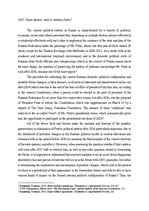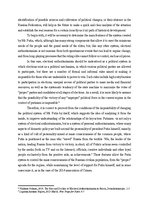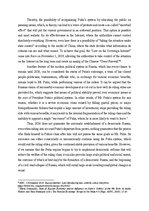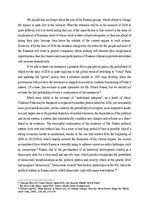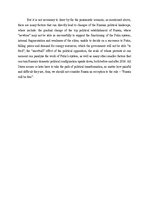-
Putin System: with or without Putin?
But it is not necessary to draw by far the pessimistic scenario, as mentioned above,
there are many factors that can directly lead to changes of the Russian political landscape, where include: the gradual change of the top political establishment of Russia, where “newbies” may not be able so successfully to support the functioning of the Putin system; internal fragmentation and weakness of the elites, unable to decide on a successor to Putin; falling prices and demand for energy resources, which the government will not be able “to feed”; the “snowball” effect of the political opposition, the scale of whose protests at one moment can paralyze the work of Putin’s system, as well as many other smaller factors that can turn Russia's domestic political configuration upside down, both before and after 2036. All States sooner or later have to take the path of political transformation, no matter how painful and difficult they are, thus, we should not consider Russia an exception to the rule – “Russia will be free”.…
The current political system in Russia is characterized by a variety of political, economic, social and cultural processes that, depending on multiple factors, interact effectively or relatively effectively with each other to implement the existence of the state machine of the Russian Federation under the patronage of Mr. Putin, whose rule this year de facto turned 20 years, except for the Tandem Exchange with Medvedev in 2008-2012. As a result, both in the academic and international (regional) environment, and in the domestic political circle of Russian elites (both officials and entrepreneurs, which in the context of Russia means about the same thing), the question of preserving the system of putinism and perhaps Mr. Putin as such after 2036, remains one of the most urgent. The precedent for rethinking the current Russian domestic political configuration and possible future changes, or their absence, in all sorts of interested and disinterested circles, not after 2024 (which was due to the end of the term of office of president Putin this year, according to the current Constitution, when a person could be elected to the post of president of the Russian Federation for no more than two consecutive terms), but after 2036, was the proposal of President Putin to reform the Constitution, which was supplemented on March 10 by a deputy of The State Duma, Valentina Tereshkova. The essence of these “additions” was reduced to the so-called “reset” of Mr. Putin's presidential terms, which automatically gives him the opportunity to participate in the presidential elections of 2024.
PDF formāts.

